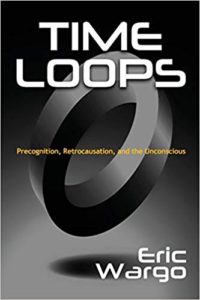Secrecy and Truth
Call me crazy, but I think that the age of open, free publication has done something to debase or weaken the domain of thought in the West. Where are the really powerful and amazing ideas?
I want to Prague in 1990 because I was in love with the idea of samizdat, of an underground culture where ideas had power and to share them was risky. Until just a few months before I arrived, there had been something really at stake in typing out a copy of a play by Havel on your manual typewriter, sharing a mimeographed essay by Heidegger with a few friends, or translating The Lord of the Rings into Czech. That world disappeared, of course, and no one I suppose thinks that’s too much of a bad thing. But where did the world of the spirit go?
The Internet has amplified a global tendency, created a world where ideas are everywhere, free for the taking. Don’t get me wrong: I’m not an enemy of this. I’m suspicious of claims to “intellectual property” and despise the ridiculous controls that corporations would put on digital writing, music, and art simply in the interest of profit. And obviously I don’t think states should censor their citizens or invade their privacy. But the price of the freedom we now “enjoy” has been a kind of homogenization of thought, a loss of the feeling that there is much at stake in any idea. Everyone blogs or twitters their every thought and feeling, but does anyone worry that fewer and fewer of these thoughts and feelings have the power to actually shock or amaze?
In the free capitalist countries there is the loss of the vital underground streams that nourished thoughtful persons living in Totalitarianism. The bookstores are full of books on any conceivable minute topic, yet do we really learn anything? We eat mental oatmeal, because there’s no meat anymore. I don’t think people remember what it is like to be shocked and amazed by ideas.
Am I wrong? Is this a childish proposition?
When I write for an audience, it always seems cheap, stupid. My best writing was ever done “for the drawer.” Secrets, I am starting to think, are worth keeping. Or at least, silence.
Here’s a proposal: That there is some intrinsic connection between secrecy and truth. If something is really true, at least philosophically, it has to be difficult or hazardous to divulge. Its audience should be limited, tightly controlled, or it should be made so obscure that only a select few will pierce its veil.
This was understood perfectly by writers of Alchemy’s golden age—the hermeticists in Prague during the reign of Rudolf II, for example: Devastating ideas are kept secret, shared with a very few.




I went through a phase where I entertained an idea similar to this one, but eventually I realized it was not very tenable. If you live in a society where speaking the truth does not draw swift and stern punishment, then it becomes easier to do so and there is less social shock associated with truth-telling. That brings up another question, though: is one of the measures of the utility of a given idea its shock value? I am not sure, but I would be inclined to think that there are still plenty of things we find shocking — it’s just that there’s no guarantee that they are coupled automatically to some great truth being revealed. Sometimes they’re just appalling and disgusting.
I know that if I had the choice, I’d rather live in a society that has a casual and non-dramatic appreciation for the truth, instead of one where the simplest and most basic tenets could only be expressed by taking grave risks.